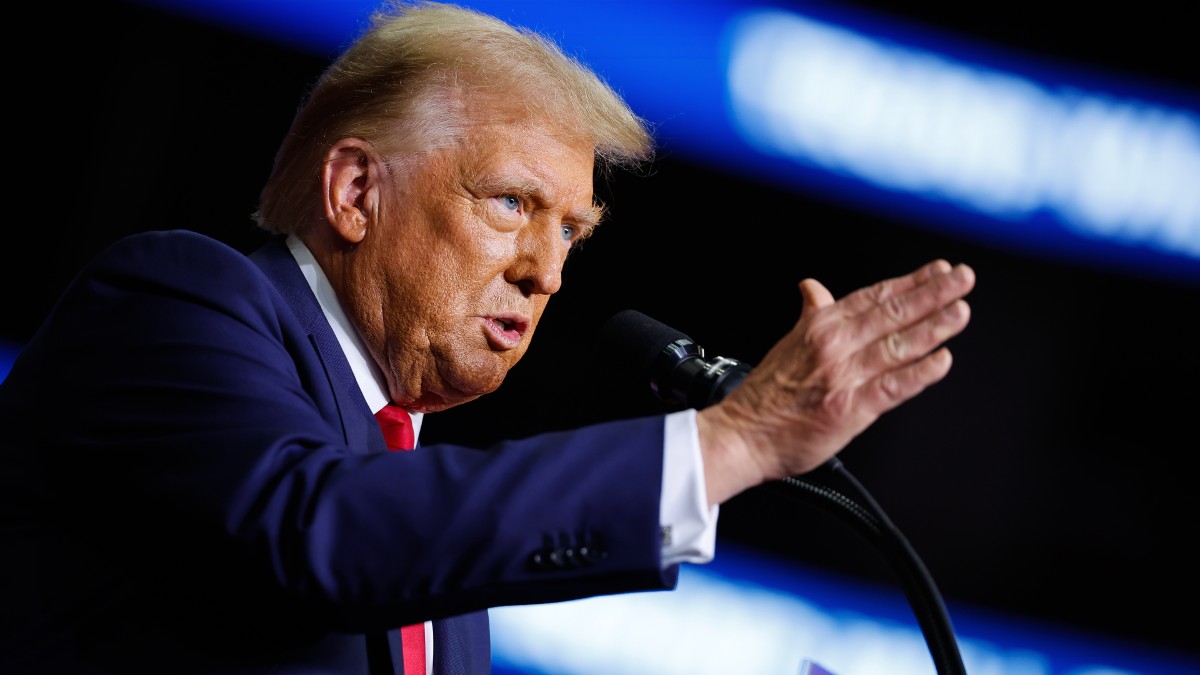‘They’ve elected a president who is disqualified’: The internet believes Trump can’t be President under one Constitutional clause

Despite Donald Trump winning the 2024 presidential election, some Americans remain convinced he cannot be sworn into office due to one Constitutional clause.
Many Americans believed Trump’s name shouldn’t even have been permitted on the 2024 ballot. Not only is he a convicted felon and sexual abuser, but he engaged in an insurrection during the January 6, 2021, attack on the U.S. Capitol. Trump desperately tried to overturn the results of the election despite the fact there was no evidence to support his claims of voter fraud. In a bid to maintain his power, he allowed his followers to stage an insurrection and refused to take action for close to three hours. While many still debate his complicity in the riot, a Colorado judge ruled that Trump did, indeed, “engage in insurrection,” and his actions were not protected as free speech. The ruling has raised hope that Trump can still be disqualified from serving as president of the United States. However, whether he is disqualified relies on how one interprets a clause of the Constitution.
The internet points out Trump may be disqualified from presidency
Trump’s re-election has renewed discussions of a potentially disqualifying Constitutional clause: Amendment 14, Section 3. The clause stipulates an individual cannot be elected to office under the United States if they’ve previously broken an oath to the Constitution and engaged in insurrection or rebellion. The Civil War-era Amendment section reads:
No person shall be a Senator or Representative in Congress, or elector of President and Vice-President, or hold any office, civil or military, under the United States, or under any State, who, having previously taken an oath, as a member of Congress, or as an officer of the United States, or as a member of any State legislature, or as an executive or judicial officer of any State, to support the Constitution of the United States, shall have engaged in insurrection or rebellion against the same, or given aid or comfort to the enemies thereof. But Congress may by a vote of two-thirds of each House, remove such disability.
On social media, users have begun pointing to the clause to argue Trump cannot be sworn into office if America intends to uphold the Constitution. Legal analyst Glenn Kirschner shared the clause, pointing out that “Trump IS an adjudicated insurrectionist.” In the comments, Trump supporters tried to dispute the “insurrectionist” label, but Kirschner pointed to the Colardo judge’s ruling and the fact that the Supreme Court did not dispute the lower court’s ruling.
Other social media users quickly latched on to the clause and began spreading it on social media, warning MAGA that they may have elected a man into office who is constitutionally disqualified from the role. Many have also pointed out the strangeness of Trump being permitted on the ballot in the first place and why this possible disqualifying factor isn’t getting more attention.
This is not the first time Section 3 of the 14th Amendment has been utilized to challenge Trump. The reason the Colorado judge ruled Trump engaged in insurrection is because it was overseeing a lawsuit brought forward by left-leaning Colorado voters, who advocated to remove Trump from the state’s ballot due to the Amendment. However, the judge also ultimately ruled that Colorado could not remove Trump from the ballot as it could not determine whether the Amendment applies to the presidency. As mentioned above, the Supreme Court eventually backed the judge’s findings.
While these courts couldn’t confirm that Section 3 of the 14th Amendment applied to Trump, none disproved it. Hence, the clause is still up for interpretation. The problem is that the language is ambiguous. For example, although it directly mentions those running for “Senator” or “Representative,” it doesn’t do the same for the role of President or Vice President. Instead, it only refers to the “elector of President and Vice-President.” Similarly, some argue the President is not “an officer of the United States.” As a result, scholars disagree on whether the clause applies to the president.
In the history of the United States, the country has never had to apply Section 3 of the 14th Amendment to a president, so there was never a need to interpret it in that manner. However, that has changed now that Trump has secured re-election to the Presidency. His re-election means it must be officially determined whether the clause applies to the president or former president before Trump is sworn into office. Regardless of how one interprets the Amendment, it feels surreal that it’s a legitimate topic of discussion. America shouldn’t be uncertain if the man who won the election is even permitted to be president because he staged an insurrection against the country.
Have a tip we should know? [email protected]